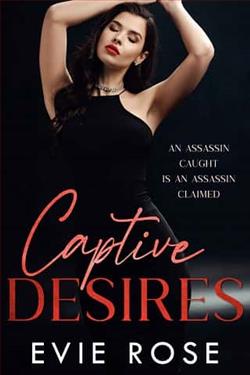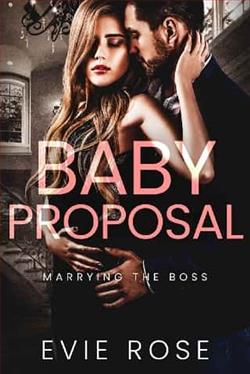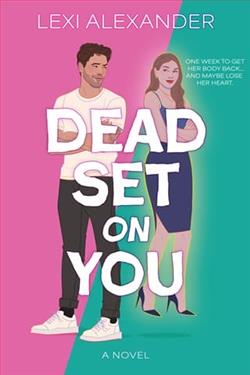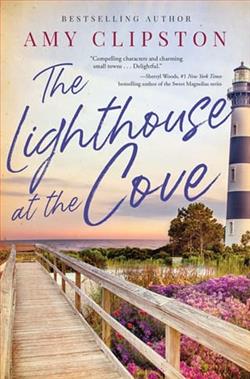Page 29 of The Goalie and Santa's Little Helper
Frankie worries we’ll be short on covering what the community center buys for the holiday meal. But what about every other day? Miller Brook doesn’t have a food bank. Or much of anything else in the realm of assistance. Sure, Chicago is only a little over an hour away, but an hour away feels like a lifetime when you’re struggling.
I start to stack some of the staples from our pantry on the counter. Canned vegetables galore in a household that maybe cracks open one can of vegetables a week. Lots of pastas, most of them in sealed packages. Easy-make dinner options. I cooked a lot of this stuff when I was in high school because it was quick and easy, and I could knock it out and eat it between school and practice. But my mom still buys it as if I’m here eating at the same rate. I have a feeling a lot of this gets tossed, and that makes my chest hurt.
“You looking for something, honey?” My mom’s shoulder brushes against mine as she peers into the pantry with me. I hold up a can of green beans, check the date on the label, then turn it toward her.
“You planning on eating this soon?”
She bunches her brow, shifting her head to give me a slight sideways look.
“Are you saying you want it? You can have it. It’s not exactly breakfast food, but . . . whatever you want.”
I sigh and move the can to join the growing pyramid on the counter. I swivel the can of mixed vegetables in my other hand, checking the date. It’s the same. Good for another two years. I don’t bother asking this time. I move it to the pile and step into the pantry to look for more food.
“I’m sorry, am I not buying the right things? I know tastes change. And usually it’s just me, so?—”
“That’s actually the thing,” I interject. I hold up two boxes of the exact same type of pasta. “Do you eat this when Dad and I are gone?”
She studies the front of the box, her eyes narrowing.
“Sometimes. I can make a box, and it will keep as leftovers for a few days.”
A box. A few days.
I leave one on the shelf and move the other to the counter.
“Noah, what’s this all about?” She steps out of the tight space in the pantry and leans her back against the fridge. Her expression feels full of concern, eyes dim, mouth tight.
I sigh and lean against the pantry door jamb.
“I gave my high school goalie stick to this kid who came to the Santa workshop the other day. He wanted a new one, not as nice as mine, and I found out that there was no way in hell his parents could afford it. And I don’t know, I just started thinking . . . what else can’t they afford?”
“Oh. I see,” my mom says. Her eyes soften, and her gaze shifts to the stocked shelves in the pantry. I rub my temples, feeling guilty for lots of things, but mostly that we have two of every pasta.
“I know this isn’t going to make a difference, but?—”
“No, it will.” My mom waves off my dismissal. She steps into the pantry and fills her arms with cans, moving them to the counter. She rests her hands on her hips and huffs out a breath, blowing up at her overgrown bangs before our eyes meet.
“Cliché or not, every little action has power. Imagine if nobody stopped to notice or care, and nobody packed up food to share with others who need it? Then nobody would be trying to solve a problem. But you are. And maybe there are a few other people thinking the same thoughts, and what if they see you bring this giant box of food to the photo booth today? They’ll think maybe there reallyissomething they could do. And maybe they’ll tell others. That’s how conversations get started. How movements begin. It only takes one person to start something with a chance of getting big.”
I scratch at my growing scruff and smile as my cheek presses into my palm.
“I’m one person,” I say.
“And now we’re two.”
My mom steps back into the pantry, gathering more food items. She sends me out to the garage to grab a few of the storage bins that are currently empty because the Christmas decorations are all up. We fill four of them, and I transfer them to the Bronco before heading to the arena.
Anthony’s truck was gone well before I left. I’m not sure if he made a stop somewhere along the way or simply headed straight to the arena to get in some extra skating. The one thing I am sure of is that he left early to avoid me. And I left late to avoid him. I don’t need to confirm any of it. Some things a person can justfeel in their gut—like food poisoning. Friendship betrayal is one of them, too.
The group on the ice is about fifteen strong by the time I suit up and stretch. I jump in for sprints just as Anthony exits the ice, and he goes out of his way to avoid eye contact. We share a house at Tiff. We’re teammates. Hell, we’re best friends. No matter how awkward this conversation is bound to be, we need to have it. And a day off the ice isn’t going to kill me. I’m one of the top five college goalies in the country. My skills will not slip simply because I skip a day of sprints.
I wait just long enough for Anthony to be mid-shower, and I fake a tight quad and exit the ice. I lumber back into the locker room and strip out of my hockey gear, slipping my Tiff sweatshirt on along with my black sweatpants. It’s early yet. I don’t need to be Santa right now.
I wait on the bench between my locker space and Anthony’s, and when he finally shuffles out of the showers and spots me, he pauses for a beat, probably running through any alternative exit plan at his disposal. There isn’t one. The only way out is by me.
“You got an early start.” I figure any conversation must begin somewhere.
“Yeah, you know. Maybe if I put in a little extra when I can, Coach will give me some actual minutes for this year.” He flicks open his locker and lets his towel drop to his feet. His very naked body is very close. I scoot back on the bench to give us both some space.















